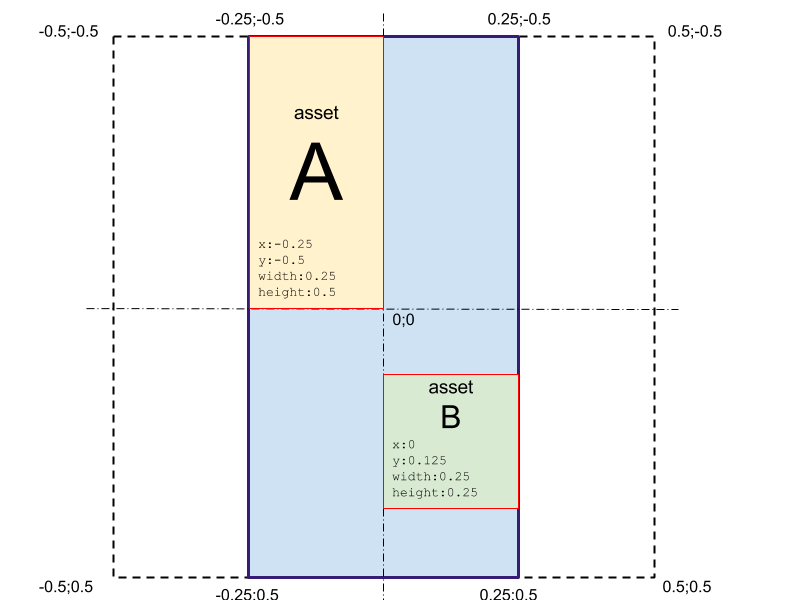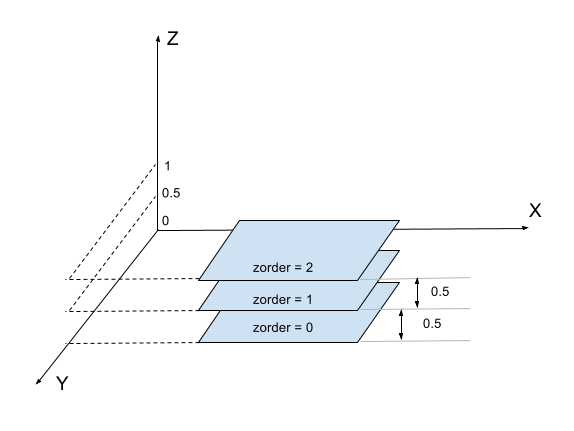For asset we have following attributes:
| attribute | description | range |
|---|---|---|
| x | left position of the marker’s top-left corner | [-0.5:0.5] |
| y | top position of the marker’s top-left corner | [-0.5:0.5] |
| width | asset’s width | [0:1] |
| height | asset’s height | [0:1] |
Assets size and position values are relative to marker’s longest size.
That’s if we have a marker width=200px and height=400px all the assets’ attributes will be relative to marker’s height (400px in our case).

Here are some helpful formulas (W-markers width, H-marker’s height, w-asset’s width, h-asset’s height):
| top left corner of the marker | x = -0.5 * min(W/H, 1) | y = -0.5 * min(H/W, 1) |
|---|---|---|
| top right corner of the marker | x = 0.5 * min(W/H, 1) | y = 0.5 * min(H/W, 1) |
| bottom left corner of the marker | x = -0.5 * min(W/H, 1) | y = -0.5 * min(H/W, 1) |
| bottom right corner of the marker | x = 0.5 * min(W/H, 1) | y = 0.5 * min(H/W, 1) |
Mobile side positioning
Automatic z coordinate calculation
We have a problem for 2D assets with rendering assets with the same z coordinate (assets blinking). To avoid this we’ve decided to calculate z coordinate automatically by adding 0.5 to next asset in a set (ordered by zorder).
This works for all 2D assets without is_3d_context and is_vertical flags.

Vertical 2D assets (any NON 3D asset with is_vertical==1)
For those assets z coordinate calculated front end side using following formula:
z = 320 * (absolute(sinus(alpha)) * [asset height in px]/2 + [altitude in px]) / [marker width in px]
where altitude is a distance (in pixels) between marker and bottom of the asset
Back altitude calculation from the z coordinate:
altitude = z*[marker width in px] / 320- absolute(sinus(alpha)) * [asset height in px]/2
Mobile side rendering
- For 3d context asset – assets rendering by z_order (from low to high)
- For plane assets – assets rendering by z coord, from high to low
- For vertical assets – nothing changes, assets rendering by z coord, from high to low